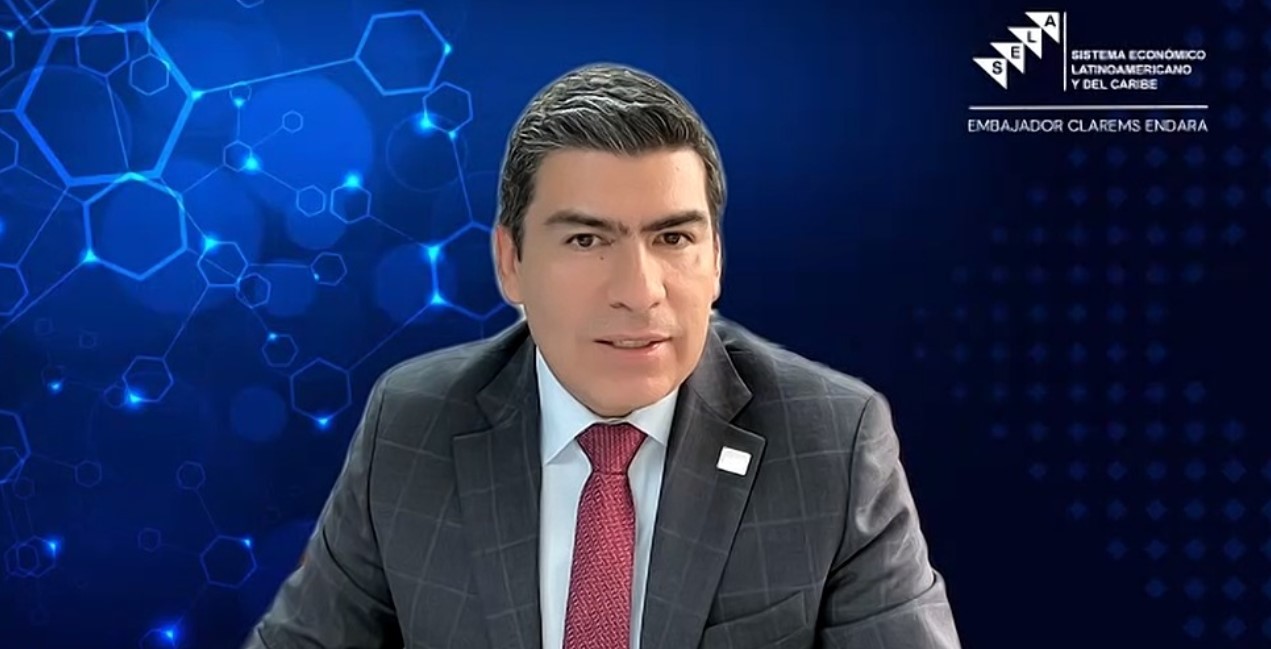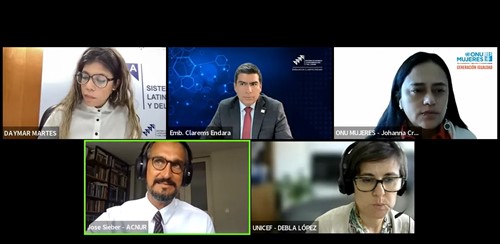
The Latin American and Caribbean Economic System (SELA) held on 20 April the Virtual Seminar “Promoting and protecting the rights of migrant women and girls from a gender perspective,” with the objective of providing tools that “contribute to the construction of a comprehensive regional agenda for migration governance,” the Permanent Secretary of SELA, Ambassador Clarems Endara, said.
During his opening remarks, the Permanent Secretary explained that there are several dimensions from which the phenomenon of human mobility could be analysed. “Today we will undertake this task from a gender perspective, since it is a variable that cuts across all aspects of the migratory experience: the motivations for migrating, the destinations chosen, the possibilities of integrating into the host societies and access to social services, to mention just a few,” he explained.
He stressed that migrant women, girls, and adolescents do not avoid suffering greater discrimination, being more vulnerable to mistreatment and experiencing double discrimination in the country of destination, compared to male and young migrants. “Providing women and girls with equal access to education, health care, and decent work will result in boosting sustainable economies and benefit societies and humanity as a whole,” he added.

SELA organized this space for dialogue and exchange with the purpose of including the gender perspective in the spaces for reflection, discussion and decision-making for the resolution of the specific problems faced by migrant women and girls in the various stages of the migration processes.
The activity was attended by the Representative of the UN Women Regional Office, Johanna Cruz; the United Nations Children’s Fund (UNICEF) Regional Gender and Migration Specialist, Debla López; and the Head of the Protection Unit at the United Nations High Commissioner for Refugees (UNHCR) for the Americas, José Francisco Sieber.
Representatives of the International Organisation for Migration (IOM) for South America, the Overseas Development Institute (ODI), UNHCR and researchers from the Inter-American Development Bank (IDB), SURES, as well as Sisma Mujer and the Regional Office for Latin America and the Caribbean of the United Nations Population Fund (UNFPA) also participated.
“Understanding how gender roles affect migration processes will allow for the development of public policies and work programmes that have a direct impact on reducing the gender inequality gap, combating all forms of discrimination and scourges such as trafficking and smuggling of persons, as well as empowering women and girls, allowing them to become agents of change and development,” the Permanent Secretary of SELA pointed out.
The Virtual Seminar “Promoting and protecting the rights of migrant women and girls from a gender perspective” is part of the Work Programme of SELA for 2022-2026, which is aimed at promoting a comprehensive vision of human mobility in order to contribute to the regional development of a migration policy that prioritizes and respects the human rights of the most vulnerable groups.
